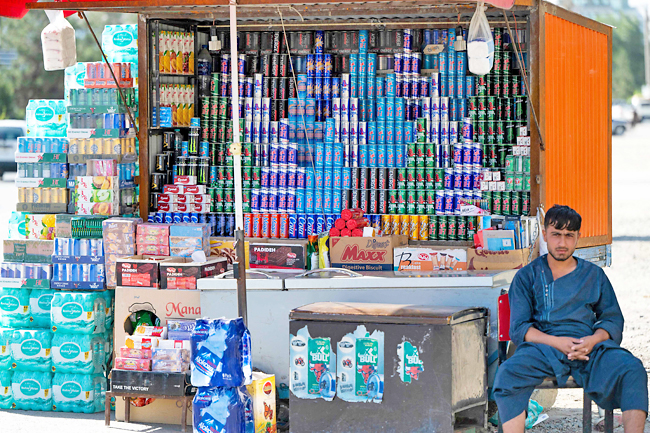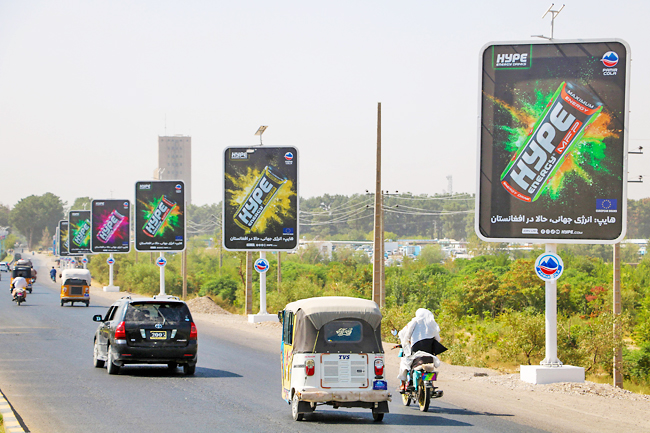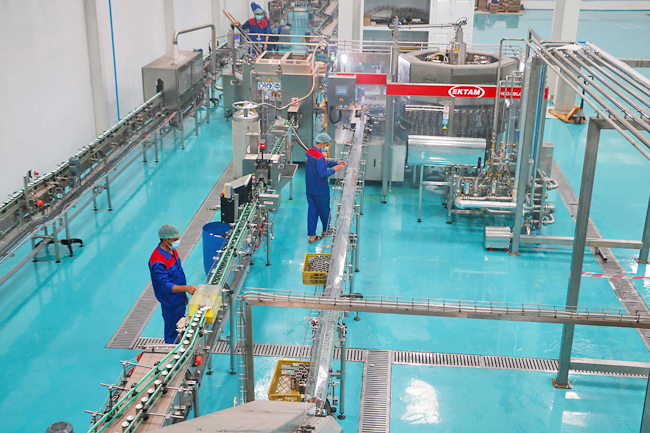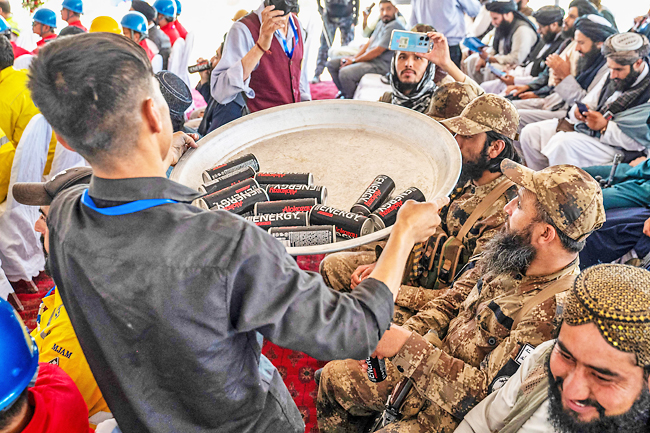AFP – A production line in a warehouse in western Afghanistan churns out 24 energy drinks every second, feeding a thirst for the tonic used to mask life’s hardships and lift wilting spirits.
The Taleban government has purged many signs of Western influence but a stimulant drink craze that arrived with United States (US) soldiers remains, and has even sprouted a thriving domestic industry.
Caffeine-rich energy drinks are consumed by all, from secret police to children, and advertised on billboards more than even Taleban state propaganda.
Many homegrown brand names evoke the bygone war, ‘Commando’, ‘Attack’, and ‘Predator’.
“It’s obvious that there are more struggles and hardships of life among the youth here,” said Milad Ghaznavi at a Herat city supermarket aisle that boasted 40 varieties of the beverage.
“Energy drinks have become kind of a habit and a craving for people,” Ghaznavi told AFP.
“They consume anything that comforts them,” said the 19-year-old, who claimed he had been “addicted” but gave them up for health reasons.




Energy drinks, which are high in caffeine and sugar and often more available than drinking water at roadside kiosks, are seen by many Afghans as a way to supplement an insufficient diet.
Nearly 90 per cent of people in poverty-stricken Afghanistan are consuming inadequate food, according to the World Food Programme (WFP).
Most recent data from March reveals 86 per cent of households are relying on less-preferred and cheaper food, with more than a third reducing meals and more than half reducing portions.
Gulzar, a labourer, fuels his 14-hour work days with four cans of ‘Hit’.
“We work here, we sweat, so when we are tired we drink energy,” said the 40-year-old, who goes by one name.
“If you don’t drink you are tired, you have a headache, you are weary.”
But drinking that many energy drinks comes with a cost.
Gulzar’s diet contains over 100 grammes of sugar – twice the intake the World Health Organization recommends – as well as a caffeine hit equivalent to six espressos, which he compares to a smoking habit.
Excessive caffeine consumption can cause high blood pressure, heart palpitations, anxiety and insomnia, according to the US Food and Drug Administration.
But Gulzar said he has no choice.
“Afghanistan is below impoverished,” he said. “If we had the means we wouldn’t use this.”
Local brands cost only around AFN30 (USD0.40) while imported Red Bull or Monster, two of the most popular global names, are unaffordable to most.
The poorest Afghans, who rely on dwindling foreign aid, are unable to buy energy drinks and instead subsist on bread with caffeinated green tea.


